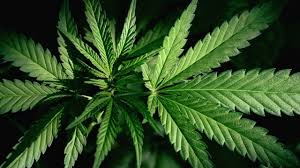
In The Costa Rica News, we have monitored everything that happens in Latin America and the United States on Medical Cannabis, this time there are new advances in the laws related in various countries and possible benefits derived from them.
It turns out that in California, growers will be able to donate Medicinal Cannabis to patients who need it. This is the approval of Laws SB 223 and SB 34. Through this legal instrument, children who use medicinal cannabis can now return to school and patients who qualify, will be able to receive donated medicines through dispensaries or delivery services to home.
These laws have long been awaited by patients whose access to compassionate cannabis (donated or gifted) was suspended with the passage of Proposition 64 passed in 2018. The so-called “SB 223” Act allows a representative to administer medicinal cannabis to the child on the school campus in a non-smoking form (ie, oil, capsule, tincture, or topical cream). Currently, medical cannabis for students must be picked up by their parents or guardians and the person removed from campus to receive their medications.
Good News for patients in Latin America.
Paraguay issued the first licenses to produce Medicinal Cannabis and in Mexico, for the first time with a majority and political will, a law for the regulation of Cannabis reached the plenary session of the Senate.

In the case of Paraguay, the authorities granted for the first time in history licenses to produce medicinal cannabis in a legal and state-controlled manner. The government, through the Ministry of the National Anti-Drug Secretariat (SENAD), Arnaldo Giuzzio, announced that it would grant at least 5 licenses to producers who meet the requirements.
The first step will be the granting of licenses for seeds since according to the authorities, there is still no stable genetics in the country available for medical needs and that the government wants to pay for it. Among the requirements are the transport plan, certificate of good practices, export plan, industrialization plan and final disposal of the product. By law 6007/17, companies must donate 2% of their production to the Ministry of Health.
Regarding Mexico, the senators followed the guidelines of the Supreme Court of Justice that required them to regulate the personal use of Cannabis. Specifically, they try to regulate the “use of Cannabis and its derivatives, under the focus of public health, human rights, and sustainable development”.
Similarly, the purpose of the Supreme Court is “to reduce the incidence of crime linked to drug trafficking by promoting peace, security, and the well-being of individuals and communities.” Part of the text presented by the Secretary of the Interior, Olga Sánchez, with the support of the Morena benches, the Citizen Movement and the Democratic Revolution Party (PRD), with 7 votes against by the National Action Party (PAN) and 8 abstentions from the Party Institutional Revolutionary Party (PRI). Regarding Cannabis use, the associations interested may sow or plant up to the amount equivalent to 4 plants per associated person.
Pharmaceutical and industrial use.
In Mexico, products based on Cannabis and its derivatives may be imported and exported. Companies in these categories must follow current laws in accordance with the health standards established. The Mexican industry would also benefit from planting Hemp for different uses such as textiles, ropes, bioplastics, and others. It should be noted that the “Law for the Regulation of Cannabis” also proposes to strengthen the cannabis industry in Mexico, so that it becomes a world power in cultivation.

